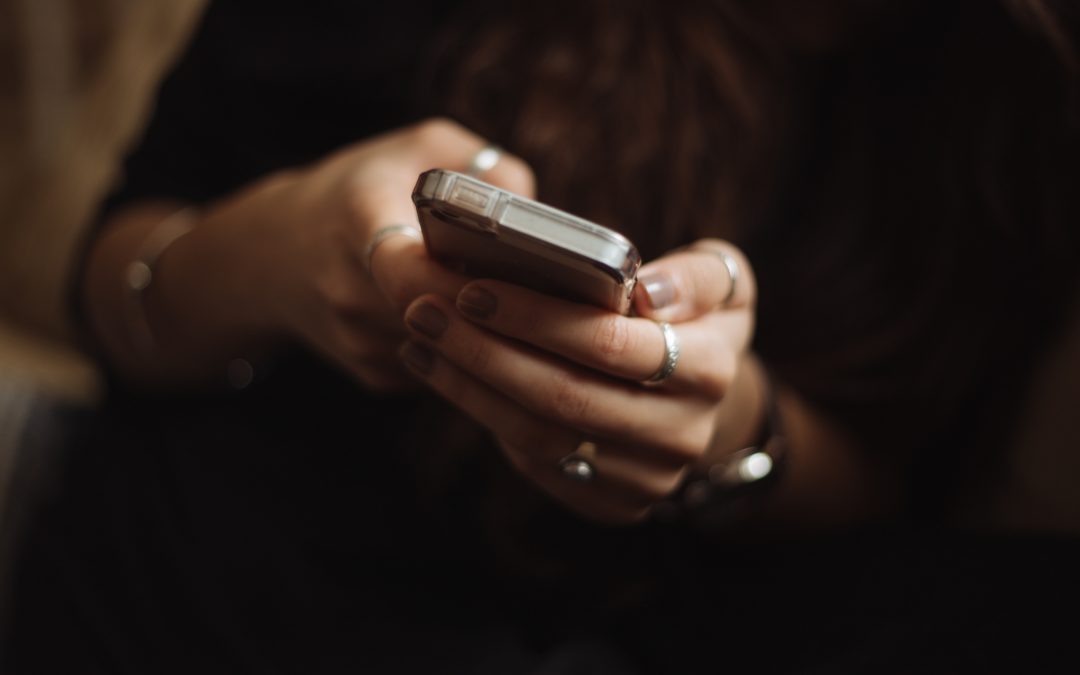When Your Cell Phone Is Your Best Friend, It’s Easy To Lose Touch With What Matters Most
Rocky is fifteen years old. Today he received his report card, which is why he’s in his room right now, grounded for the weekend. His grades are near failing, even though he used to always get all A’s. The worst thing about it is, he doesn’t even care. There is only one thought on his mind, and it has nothing to do with schoolwork.
Angela is a hard working mother of two. She gets up early, before the rest of the household, and starts in on her daily to-do list. By the end of the day she is exhausted. All she wants to do is go to bed early, but she can’t seem to ever get enough sleep. She feels trapped by a never-ending cycle of fatigue and anxiety.
Tyson lives in a small house along with his sister and a few other guys. He used to feel connected to his housemates, and enjoy getting food with them and watching tv. He used to play his guitar regularly. Now-a-days he feels lethargic most of the time. He misses doing stuff with his friends, but he just doesn’t have the energy to leave his room.
All three of these people have one thing in common, an extremely common condition. They all used to live full lives and feel driven to pursue personal goals. Lately, all three have been feeling stuck and they don’t know how to get out. Rocky, Angela and Tyson all suffer from cell phone addiction, and they are not alone.
Cell Phone addiction, in different levels of severity, affects over half of Americans today. Young people have the highest rates of cell phone usage, but cell phone users of all ages can exhibit problematic addictive behaviors.
The symptoms of cell phone addiction are:
Tolerance: The need to engage in cell phone use more and more to get the desired effect.
Withdrawal: The experience of unpleasant symptoms when not using the cell phone. Symptoms are often the opposite of the effects felt while using the cell phone. For example, many people feel a rush when they check social media profiles, but the addict may feel depressed when they aren’t checking their phones for social media updates.
Difficulty cutting down or controlling the addictive behavior: Repeated and failed attempts to quit or cut down on cell phone use or limit the use of certain addictive apps and features.
Cell phone use takes over: The cell phone use begins to disturb more and more areas of a person’s life. Previously important social, recreational and occupational roles and activities can become jeopardized.
Becoming preoccupied with the addiction: The person starts to spend a lot of time planning, engaging in, and recovering from the addictive behavior. Cell phone addiction can become the focus of a person’s attention for most of their waking hours.
Here are some approaches that can help with getting over cell phone addiction:
1. Set limits on how long you use your phone each day, by turning it off at certain times, such as after 10 p.m., or before 9 a.m.
2. Purchase prepaid minutes so you’re not tempted to go overboard.
3. Set ever increasing goals for cell phone free time. Start small, such as 5 or 10 minutes.
4. Schedule cell phone free activities, and stick to them
As you let go of your need to have a cell phone with you, feelings will come up such as a fear of being alone and a need for constant attention from others. You may like yourself better when you’re on the phone and feel insecure if you’re without it.
Focus on releasing these emotions as they come up. Breathing deeply and focusing on your breath can help you deal with, and get through triggering emotions which may make you want to give up.
Studies show it can take a little over two months to form new habits and break old ones. In the case of cell phone addiction, small, regular changes in your daily routine, and filling your time with activities that help with temptation, can start you on a sure road to breaking the addiction, and focusing on other activities and people for whom you care.
Cornerstone Mobile Counseling can link you with clinicians that can help individuals with all types of addictions, including technological ones. Call or text (315) 868-1000 if you think you or a loved one need help.


